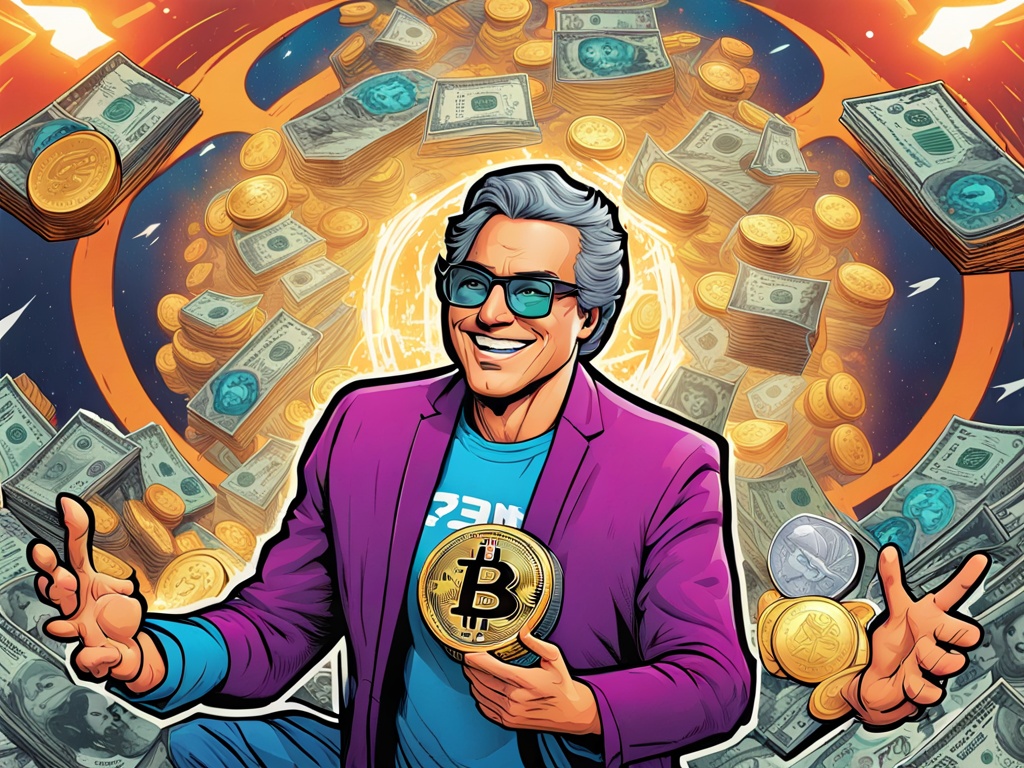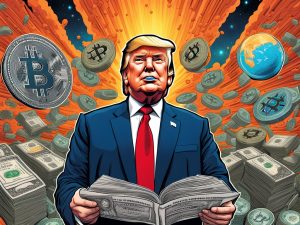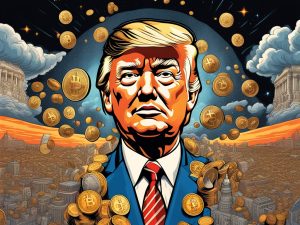Analyzing Justin Sun’s Influence in the Cryptocurrency Sphere
In discussions surrounding the influence of significant figures in cryptocurrency, Justin Sun undeniably captures attention. His involvement with various blockchain projects has made him a prominent, though sometimes controversial, name. The ongoing legal issues he faces have recently come to the forefront, especially in light of the case that examined the reputational impacts associated with his ventures. This year, Coinbase’s legal proceedings brought Sun’s reputation into sharp focus, revealing the complexities of how his actions affect others in the crypto ecosystem.
Coinbase’s Legal Position: A Closer Look 📈
Coinbase’s legal documentation highlighted the intricate relationship between Justin Sun and the exchange’s decision to delist Wrapped Bitcoin (wBTC). It argued that the connection to Sun, rather than the choice related to wBTC, played a significant role in any negative perceptions faced by the affected parties. The legal arguments presented suggest that damage experienced by BiT, a token associated with wBTC, stemmed from its own decisions rather than external factors.
- This resilience resulted in the court’s acknowledgment of BiT’s troubles as largely self-imposed.
Such analysis is critical as it illustrates the ripple effects of individual reputations on market dynamics and highlights the importance of assessing one’s associations and decisions in the crypto space.
Concerns Over Token Standards ⚖️
Critics of Coinbase’s argument have raised crucial points, particularly regarding the company’s own tokenized Bitcoin product, cbBTC. One significant concern is the lack of transparency around proof of reserves for cbBTC. In contrast, wBTC has earned trust through consistent backing with 1:1 Bitcoin reserves, which has historically assured users. This year, the emergence of cbBTC has sparked debates over its competitive viability in the market.
- Some industry experts suggest that the swift uptake of cbBTC could indicate that underlying motivations for Coinbase’s delisting actions may stem not just from matters of prudence, but from a desire to bolster their own product’s standing.
This brings to light the competitive nature of cryptocurrency exchanges and raises questions about how market influences can shape strategic decisions, sometimes obscuring the line between risk management and market rivalry.
The Trust Factor in Cryptocurrency Assets 🔄
As the cryptocurrency landscape continues to evolve, the importance of trust cannot be overstated. Wrapped Bitcoin (wBTC) has long stood as a reliable asset in this environment, providing a level of assurance to investors. However, the growth of cbBTC introduces new variables that could challenge existing norms. The industry’s confidence in various tokens often depends heavily on how transparently they manage their reserves and maintain their backing.
- Market participants are increasingly wary of tokenized assets. Hence, clarity around the proof of reserves becomes critical.
Maintaining and gaining trust will remain essential for any cryptocurrency project, especially in a climate where the competition is fierce, and reputations are fragile.
Market Dynamics and Implications for the Future 🚀
The ongoing developments involving influential personalities and their impact on market dynamics serve as a reminder of the complexity present in the cryptocurrency sector. Players such as Justin Sun not only affect their own projects but also impact broader market perceptions and behaviors. This year has presented numerous lessons about the relationship between reputation, regulation, and competitive advantage in this rapidly changing environment.
- As the landscape continues to adjust, the need for diligent scrutiny of partnerships and the implications of reputational risk will be paramount.
Businesses and investors alike must navigate these waters with caution while actively seeking clarity and accountability from all parties involved.
Hot Take: Navigating Reputations in the Crypto World 🧐
In conclusion, the relationship between notable figures and their associated risks is a crucial consideration in cryptocurrency. The discussions surrounding Justin Sun illustrate how reputations can shape market movements and perceptions. This year, as the legal landscape develops, we see an increasing focus on the importance of transparent practices and the implications for competitors and associated entities. Understanding these dynamics will aid in making informed decisions as the industry continues to grow and evolve.
In closing, the intersection of reputational influence, transparency, and competitive strategies will guide the future discourse in the cryptocurrency world. Being aware of how these elements interact provides a clearer picture for anyone involved in or observing the crypto scene.





 By
By

 By
By
 By
By

 By
By